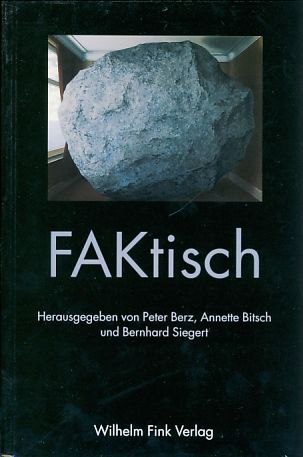Walter J. Ong: Orality and Literacy: The Technologizing of the Word (1982–)
Filed under book | Tags: · alphabet, language, literature, logocentrism, media history, oral culture, poetry, print, rhetoric, technology, text, writing

This classic work explores the vast differences between oral and literate cultures offering a very clear account of the intellectual, literary and social effects of writing, print and electronic technology.
In the course of his study, Walter J. Ong offers fascinating insights into oral genres across the globe and through time, and examines the rise of abstract philosophical and scientific thinking. He considers the impact of orality-literacy studies not only on literary criticism and theory but on our very understanding of what it is to be a human being, conscious of self and other.
First published in 1982 by Methuen & Co. Ltd
Publisher Routledge, 2002
New Accents series
ISBN 0415281296, 9780415281294
204 pages
PDF (1982/2002, updated on 2014-11-23)
Comment (0)Berz; Bitsch; Siegert (eds.): FAKtisch. Festschrift für Friedrich Kittler zum 60. Geburtstag (2003) [German]
Filed under book | Tags: · computing, history, literature, mathematics, media archeology, media history, media theory, psychoanalysis

“Dieser Band würdigt das facettenreiche Werk Friedrich Kittlers, das sich von der Literaturwissenschaft über die Mediengeschichte und die Computerwissenschaft bis hin zur Mathematik, Kulturwissenschaft und Gräzistik erstreckt. Die Beiträge lassen die immense Vielfalt der Disziplinen und Gegenstände erkennen, die durch Kittlers Arbeiten Anregungen erhalten haben und nicht selten geradezu revolutioniert worden sind.”
Edited by Peter Berz, Annette Bitsch, Bernhard Siegert
Publisher Wilhelm Fink, Munich, 2003
ISBN 3770539168, 9783770539161
374 pages
PDF (no OCR, updated on 2012-12-31)
Comments (3)Markus Krajewski: Paper Machines: About Cards & Catalogs, 1548-1929 (2002/2011)
Filed under book | Tags: · library, media archeology, media history, storage

Today on almost every desk in every office sits a computer. Eighty years ago, desktops were equipped with a nonelectronic data processing machine: a card file. In Paper Machines, Markus Krajewski traces the evolution of this proto-computer of rearrangeable parts (file cards) that became ubiquitous in offices between the world wars.
The story begins with Konrad Gessner, a sixteenth-century Swiss polymath who described a new method of processing data: to cut up a sheet of handwritten notes into slips of paper, with one fact or topic per slip, and arrange as desired. In the late eighteenth century, the card catalog became the librarian’s answer to the threat of information overload. Then, at the turn of the twentieth century, business adopted the technology of the card catalog as a bookkeeping tool. Krajewski explores this conceptual development and casts the card file as a “universal paper machine” that accomplishes the basic operations of Turing’s universal discrete machine: storing, processing, and transferring data. In telling his story, Krajewski takes the reader on a number of illuminating detours, telling us, for example, that the card catalog and the numbered street address emerged at the same time in the same city (Vienna), and that Harvard University’s home-grown cataloging system grew out of a librarian’s laziness; and that Melvil Dewey (originator of the Dewey Decimal System) helped bring about the technology transfer of card files to business.
The book is an extended and updated version of the original ZettelWirtschaft published in German by Kulturverlag Kadmos Berlin, 2002
Translated by Peter Krapp
Publisher MIT Press, 2011
History and Foundations of Information Science series
ISBN 0262015897, 9780262015899
215 pages
review (Tom Wilson, Information Research)
review (Tomáš Dvořák, Teorie vědy, in Czech)
PDF (updated on 2012-9-27)
Comment (0)
